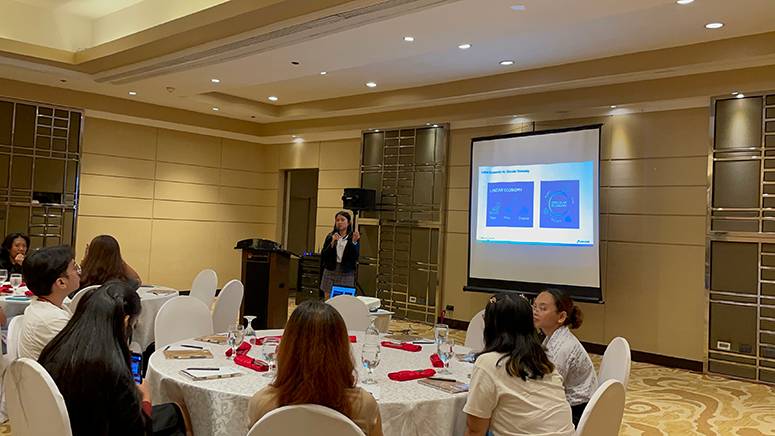In a pioneering collaboration, Holcim Philippines recently welcomed engineering students from the University of the Philippines (UP) aboard the Circular Explorer, a groundbreaking solar-powered research and recycling vessel. This initiative reflects Holcim’s strong commitment to advancing sustainability in the construction industry.
The field activity is part of the elective course Sustainable Design and Construction (CE 197) offered by the UP Diliman College of Engineering in partnership with Holcim Philippines, Inc., and supported by One Earth – One Ocean and the Asia Society for Social Improvement and Sustainable Transformation (ASSIST). This course immerses future engineers in sustainable practices that prioritize the balance of economic, environmental, and social considerations—key principles of the circular economy, a core advocacy of Holcim.
Eye-Opening Experiences on the Circular Explorer
For the students, the experience aboard the Circular Explorer went beyond academic learning. Louis Vincent Lee, a civil engineering student from UP Diliman, expressed his insights from the activity. “It was an eye-opening and eye-catching experience to see all these sustainable technologies being incorporated in solving a big problem like plastic pollution in an area as infamous as Manila Bay. I hope to incorporate these things in my own field in the construction of sustainable homes and sustainable infrastructure.”

Assistant Professor John Christian Quero from the UP Institute of Engineering also shared his appreciation. “The Circular Explorer gave us an idea that science can be used to solve these problems and help elevate the lifestyle and the state of living of our fellow Filipinos.”
Circular Explorer: Sustainability in Action
At the heart of this initiative is the Circular Explorer, a revolutionary 100% solar-powered catamaran designed to recover up to four tons of plastic waste per day, preserving marine ecosystems while promoting sustainable solutions. Equipped with built-in sensors, the vessel collects vital ocean data to support research initiatives by institutions like the UP Marine Science Institute (UPMSI), the Department of Science and Technology (DOST), and international research partners.
Beyond environmental cleanup, the Circular Explorer embodies Holcim’s vision of a circular economy, where waste is reintroduced into productive cycles.
Empowering Future Engineers
The UP students’ engagement with the Circular Explorer is just one aspect of their immersive learning experience. As part of the CE 197 course, students recently presented final projects on sustainable infrastructure guided by Holcim’s Sustainable Construction pillars: Healthy Planet, Thriving Communities, Viable Economics, and Uplifting Places.
“Holcim Philippines is committed to circularity—a future where more materials are reintroduced into the cycle instead of ending up as waste. By educating future engineers about the importance of sustainable building practices, we are hopeful for a future economy where construction activity—and all human activity—is done within the safe limits of the planet,” shared Samuel Manlosa Jr., Holcim Philippines’ Head of Geocycle.
This collaboration underscores Holcim Philippines’ dedication to fostering innovation and empowering the next generation of engineers to lead sustainable transformation in their respective fields.
Through the Circular Explorer and initiatives like CE 197, Holcim demonstrates how partnerships between academia and industry can pave the way for a cleaner, greener, and more sustainable future for the Philippines.
#Released
